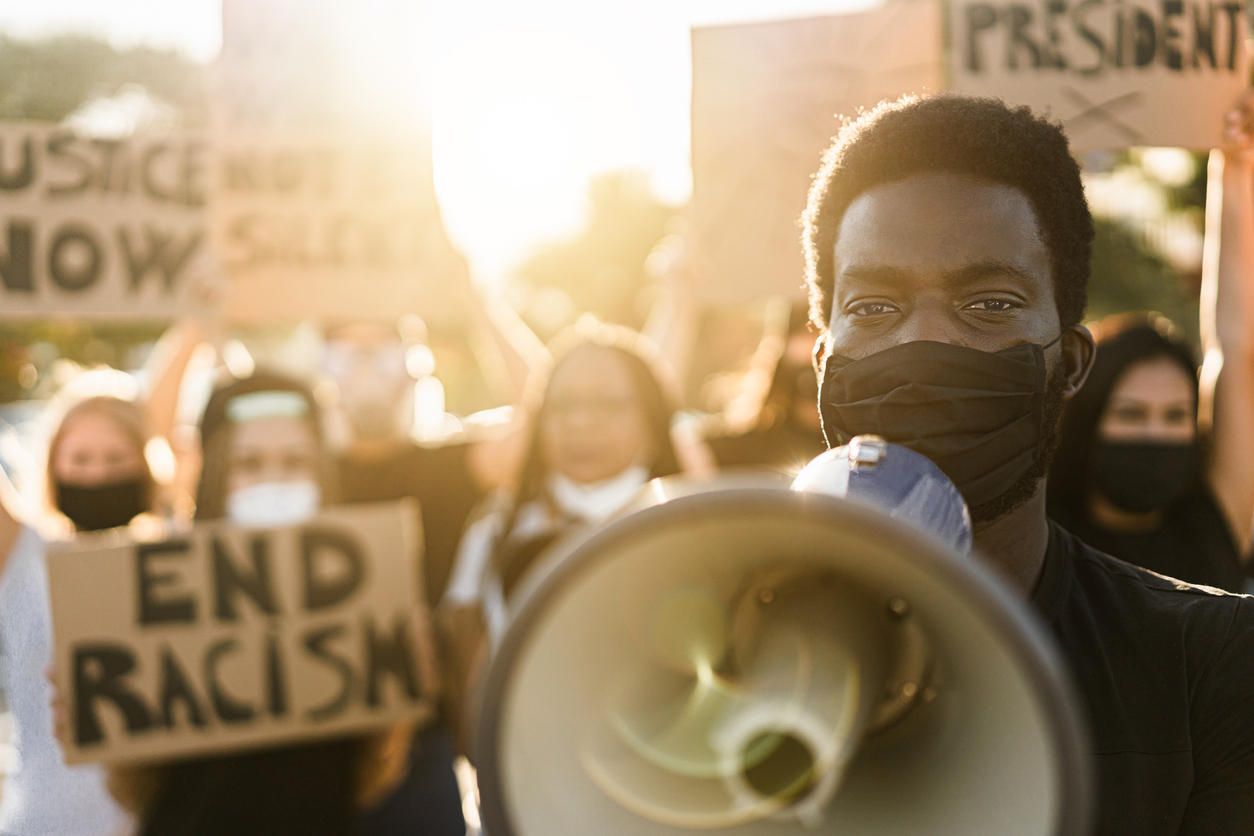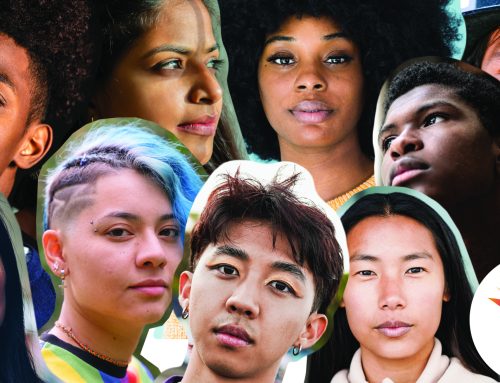The purpose of this blog is not to argue or discount the potential benefits of Psychedelic Assisted Treatment, as the research noted above confirms there is potential. Rather, this blog is intended to encourage professionals to better understand why using Psychedelic Assisted Treatment for race-based trauma is inappropriate, and harmful to minoritized communities, namely BIPOC communities.
Psychedelic Assisted Treatment (PAT) has gained significant traction over the past decade. The decriminalized nature movement, in which states like California and Colorado have passed legislation to reduce or remove criminal penalties for the personal use of natural substances such as psilocybin and ayahuasca, also increased interest in Psychedelic Assisted Treatment. Psychedelic Assisted Therapists are working to increase awareness of the research done on the effectiveness of psychedelic treatment with diagnoses including trauma, depression, and anxiety (Chi & Gold, 2020). There is also emerging research on the utilization of Psychedelic Assisted Treatment for Obsessive Compulsive Disorder (OCD) (Rodrigues & Ribeiro, 2022). Psychedelics have also been seen as safer to use than traditionally prescribed medications, citing that psychedelics are natural substances with little to no addictive risk (Johansen & Krebs, 2015). More psychologists are conducting research that shows psychedelic effectiveness for a diagnosis such as PTSD is very promising (Wenk, 2023). Unfortunately, psychedelics have been criminalized and labeled as schedule I substances, indicating that they have no therapeutic benefit, and as a result, have not been cleared for research to confirm or deny their potential utility.
Various psychedelics have been used in indigenous populations for generations. The healing power of psychedelics has been documented throughout history and are well respected by the indigenous communities in which they are used. However, recently, there have been discussions regarding the utility of Psychedelic Assisted Therapy for race-based trauma. This is extremely problematic. To understand why this is an issue, we first need to understand what is being proposed.
The narrative around Psychedelic Assisted Treatment is that it can cure most mental health conditions more effectively than traditional medication and, as a result, should be utilized. The purpose of this blog is not to argue or discount the potential benefits of Psychedelic Assisted Treatment, as the research noted above confirms there is potential. Rather, this blog is intended to encourage professionals to better understand why using Psychedelic Assisted Treatment for race-based trauma is inappropriate, and harmful to minoritized communities, namely BIPOC communities. We need to place a hard stop on the notion that psychedelics should be used for race-based trauma because frankly, attempting to use medications or psychedelics to treat race-based trauma is backward.
Race-Based Traumatic Stress Theory (Carter, 2007) provided empirical evidence that supported conceptualizing race related stress as a form of trauma. Research attempting to validate race-based trauma due to racial incidents utilized comparisons to other traumatic incidents to assist clinicians in recognizing the similarities in trauma responses that one might have to one or several race-related incidents (Polanco-Roman et al., 2016; Carter et al., 2020). The goal of drawing these comparisons was to raise awareness in the mental health profession of race-based trauma. Additionally, these comparisons validated the trauma that people of color experience based on institutionalized racism and systemic oppression. Researchers hoped to encourage providers to take race-based trauma seriously and treat it equitably. It was an attempt to give providers tools for how to conceptualize race-based trauma. Further, this research was conducted to help promote the treatment of race-based trauma instead of dismissal of it as one’s personal experience with no clinical association. (Bryant-Davis, 2007).
Although there are many reasons why the notion to use psychedelics to treat race-based trauma is inappropriate, this blog will explain the four that are most salient.
1. Using Psychedelics to treat race-based trauma ignores the systems that perpetuate the trauma to begin with.

Race-related traumatic experiences are vastly different from other traumatic experiences in part, due to the reason the traumatic incidents occur. Research shows that Black people are more likely to experience excessive use of force by police than white people due to prejudice and institutionalized racism (Moore et al., 2018; Motley et al., 2022). Research also identifies that exposure to racism has a direct impact on birthweight outcomes for Black women who are pregnant (Hilmert et al., 2014; Markin & Coleman, 2021).
A study conducted by Yang et al., (2022) on antiAsian racism and race-based stress highlighted news media related to the COVID-19 pandemic as contributing to race-based stress and trauma within the Asian community. Prejudice and Institutionalized Racism are what contribute to these examples of race-based trauma. Prejudice is what causes BIPOC individuals to experience high levels of fear and anxiety when they see a police officer, or when they are approached by law enforcement. Institutionalized Racism is what causes Black women to experience high levels of stress during pregnancy, and emotional dysregulation when in a hospital setting. The media pathologizing the entire Asian race to characterize a worldwide pandemic is what causes racial trauma. Unlike trauma caused by an individual, by combat, or any other uncommon situation, race-based trauma is institutionalized. It stems from the very foundation of American history and as a result, can be easy to miss. The institution is what needs to be corrected to address race-based trauma.
2. Race-Based Trauma is a repetitive experience.
Unlike other traumatic experiences, which are generally characterized as uncommon or infrequent, race-based trauma is a daily lived experience. Twenty years after 9/11, a Muslim woman recounted her experience as a child when 9/11 occurred. She recounted her feelings of fear after being called a “terrorist” while she walked with her sister to their mosque (Fam, 2021). This is not an isolated incident, and because of this formative experience, per her report, the fear of how she is perceived when wearing her Hijab is constant. The racial trauma experienced by BIPOC communities happens throughout one’s life. To consider Psychedelic Assisted Treatment to address this racial trauma invalidates the daily experience of BIPOC communities. These traumatic experiences occur through social media, television, and simply from existing.
These encounters can be direct, in which the person has an experience like the person described above, or indirect, though experiences that occur to family members, friends, or people of a similar background whose stories make national headlines.
Racial trauma crosses generations. Colonization, Slavery, and cultural appropriation have had continued lasting negative impacts on BIPOC communities (Gone, 2021). These parts of American history inform the way in which society functions. Segregation, immigration laws, children being separated from their families, and families being torn apart through deportation all constitute institutionalized racist practices in which BIPOC communities live. The laws, which inform the way our society functions, all contribute to repetitive traumatic race-related incidents. Psychedelic Assisted Treatment would not contribute to the eradication of these institutional practices and as a result, does not address the trauma or the actual problem.

3. Using Psychedelics to treat race-based trauma implies that the person who experienced the trauma has a “problem”.
A 9-year-old girl in New Jersey was attempting to use a natural remedy to solve the lanternfly infestation in her community. She had been living in the neighborhood for 8 of the 9 years of her life and was well known by her neighbors. Despite this, her next-door neighbor called the police and reported, “There’s a little Black woman walking, spraying stuff on the sidewalks and trees on Elizabeth and Florence. I don’t know what the hell she’s doing. Scares me, though.” As a result of this phone call, the police went to investigate the situation. They saw the little girl, questioned her, and deemed there was no risk (Brown & Moges-Gerbi, 2022). Unfortunately, after being stopped by the police, this 9-year-old child has experienced a race-based traumatic incident while trying to contribute positively to her community. She was not the problem and did not have a problem, so why would any recommendation for her symptoms be medication, let alone psychedelics? Reactions of BIPOC individuals due to race-based traumatic incidents are responses to the trauma, and in many cases, necessary and protective.
The New Jersey incident is not uncommon, and far too many calls to the police result in the death of an innocent Black or Brown child. These stories are examples of indirect racial trauma. These instances are what cause BIPOC communities to be hypervigilant about their children playing outside and ensuring they are being watched by a trusted adult. These situations are what develop a protective fear of law enforcement for BIPOC communities. The race-based trauma is constant and real. People of color are still being murdered by police, being treated as less than human, and are disproportionately impacted by health disparities. Suggesting that symptoms of race-based trauma need to be addressed with psychedelics dismisses the truth behind why the symptoms exist. Suggesting that psychedelics are the answer for these race-based traumatic incidents absolves society of its responsibility to expose and eliminate racism. Further, it places responsibility on BIPOC communities to eliminate behavior that is protective and conducive to survival.
4. Using Psychedelics to treat race-based trauma disregards the history of harmful experimentation on BIPOC communities.
The Tuskegee Syphilis Study occurred between the years of 1932 and 1972, in which almost 400 Black men diagnosed with syphilis, were studied under misleading and false information. Though there was treatment available for the disease, the black participants were not informed and were not provided treatment. The participants were also misinformed about the purpose and length of the study and as a result, more than 100 men died from the treatable disease (Centers for Disease Control and Prevention, 2022). What was later discovered, is that a similar experiment was conducted from 1946 to 1948, in which Guatemalan soldiers were infected with syphilis and gonorrhea by US physicians without consent per the instruction of the federal government. The rationale was that this study was done to help develop better methods for infection prevention (Tobin, 2022). Proponents of Psychedelic Assisted Treatment for racial trauma note that BIPOC communities are excluded from research that can be beneficial for treatment and should be considered in early psychedelic studies (Fogg et al., 2021). However, given the history of manipulation and harm done to BIPOC communities through medical research, there does not appear to be any concern for ensuring the safety of BIPOC communities. Similar to point number 2, experimentation with BIPOC communities places blame for racial trauma on minoritized communities instead of addressing institutionalized racism.
Overall, when it comes to interventions for race-based trauma, Psychedelic Assisted Treatment is not the answer. This notion has potential to cause harm in BIPOC communities and poses a significant risk to the safety of Minoritized Individuals.
Professionals working with people impacted by racial trauma may use a trauma framework to better understand the gravity of symptoms but conceptualizing racial trauma does not necessarily mean utilize the same interventions you would for other forms of trauma. “Treatment” for race-based trauma needs to occur at a system level, through policy change, training, implementation of culturally responsive mental health treatment for professionals, and dismantling institutionalized racism (Wilcox, 2022). Part 2 of this blog will highlight ways to appropriately address race-based trauma with culturally responsive approaches. It will also identify ways professionals can address race-based trauma from a system level. If your organization has the desire to improve treatment by providing culturally responsive care, but are not sure where to start, contact Steady and we will work with you to put words into action.
References
Brown, J. & Moges-Gerbi, M. (2022, Nov. 23). A neighbor’s call to police on a little Black girl while she sprayed lanternflies exposes a deeper problem, mom says. CNN. https://www.cnn.com/2022/11/23/us/lanternflies–black–girl–new–jersey–police–reaj
Bryant-Davis, T. (2007). Healing Requires Recognition: The Case for Race-Based Traumatic Stress. The Counseling Psychologist, 35(1), 135–143. https://doi.org/10.1177/0011000006295152
Carter, R. T. (2007). Racism and Psychological and Emotional Injury: Recognizing and Assessing Race-Based Traumatic Stress. The Counseling Psychologist, 35(1), 13–105. https://doi.org/10.1177/0011000006292033
Carter, R. T., Kirkinis, K., & Johnson, V. E. (2020). Relationships between trauma symptoms and race-based traumatic stress. Traumatology, 26(1), 11–18. https://doi.org/10.1037/trm0000217
Centers for Disease Control and Prevention. (2022, December 5). The Syphilis Study at Tuskegee Timeline. https://www.cdc.gov/tuskegee/timeline.htm
Chi, T., & Gold, J. A. (2020). A review of the emerging therapeutic potential of psychedelic drugs in the treatment of psychiatric illnesses. Journal of the neurological sciences, 411, 116715. https://doi.org/10.1016/j.jns.2020.116715
Fam, M., Hajela, D., & Henao, L.A. (2021, Sept. 6). Two decades after 9/11, Muslim Americans still fighting bias. Associated Press. https://apnews.com/article/September–11–Muslim–Americans 93f97dd9219c25371428f4268a2b33b4
Fogg, C., Michaels, T. I., de la Salle, S., Jahn, Z. W., & Williams, M. T. (2021). Ethnoracial health disparities and the ethnopsychopharmacology of psychedelic-assisted psychotherapies. Experimental and Clinical Psychopharmacology, 29(5), 539–554. https://doi.org/10.1037/pha0000490
Gone, J. P. (2021). The (post)colonial predicament in community mental health services for American Indians: Explorations in alter-Native psy-ence. American Psychologist, 76(9), 1514– 1525. https://doi.org/10.1037/amp0000906
Hilmert, C. J., Dominguez, T. P., Schetter, C. D., Srinivas, S. K., Glynn, L. M., Hobel, C. J., & Sandman, C. A. (2014). Lifetime racism and blood pressure changes during pregnancy: Implications for fetal growth. Health Psychology, 33(1), 43–51. https://doi.org/10.1037/a0031160
Johansen, Ø., & Krebs, T. S. (2015). Psychedelics not linked to mental health problems or suicidal behavior: A population study. Journal of Psychopharmacology. https://doi.org/10.1177/0269881114568039
Markin, R. D., & Coleman, M. N. (2021). Intersections of gendered racial trauma and childbirth trauma: Clinical interventions for Black women. Psychotherapy. Advance online publication. https://doi.org/10.1037/pst0000403
Moore, S. A., Robinson, M. M., Clayton, D., Adedoyin, A. C. A., Boamah,D., Kyere, E., & Harmon, D. (2018). A Critical Race Perspective of Police Shooting of Unharmed Black Males in the United States: Implications for Social Work. Urban Social Work, 2, 33–47. https://doi.org/10.1891/2474–8684.2.1.33
Motley, R. O., Jr., Joe, S., McQueen, A., Clifton, M., & Carlton-Brown, D. (2022). Development, construct validity, and measurement invariance of the Modified Classes of Racism Frequency of Racial Experiences Measure (M-CRFRE) to capture direct and indirect exposure to perceived racism-based police use of force for Black emerging adults. Cultural Diversity and Ethnic Minority Psychology. Advanced online publication. https://doi.org/10.1037/cdp0000525
Polanco-Roman, L., Danies, A., & Anglin, D. M. (2016). Racial discrimination as race-based trauma, coping strategies, and dissociative symptoms among emerging adults. Psychological trauma: theory, research, practice and policy, 8(5), 609–617. https://doi.org/10.1037/tra0000125
Rodrigues, J., Nombora, O., & Ribeiro, L. (2022). Therapeutic potential of serotoninergic psychedelic substances in the treatment of Obsessive Compulsive Disorder. European Psychiatry, 65(S1), S647-S647. https://doi.org/10.1192/j.eurpsy.2022.1659
Tobin M. J. (2022). Fiftieth Anniversary of Uncovering the Tuskegee Syphilis Study: The Story and Timeless Lessons. American journal of respiratory and critical care medicine, 205(10), 1145–1158. https://doi.org/10.1164/rccm.202201–0136SO
Wenk, G., Chadderton, P., Golden, C., & Marano, H.E. (2023, January). Why Psychedelics Are Therapy’s Next Frontier. Psychology Today. https://www.psychologytoday.com/us/articles/202301/why psychedelics–are–therapys–next–frontier
Wilcox, M. M. (2022). Oppression is not “culture”: The need to center systemic and structural determinants to address anti-Black racism and racial trauma in psychotherapy. Psychotherapy. Advance online publication. https://doi.org/10.1037/pst0000446
Yang, J. P., Nhan, E. R., & Tung, E. L. (2022). COVID-19 anti-Asian racism and race-based stress: A phenomenological qualitative media analysis. Psychological Trauma: Theory, Research, Practice, and Policy, 14(8), 1374–1382. https://doi.org/10.1037/tra0001131




